SUMMARY
This is AI generated summarization, which may have errors. For context, always refer to the full article.
![[New School] Confessions of a Marcos apologist](https://www.rappler.com/tachyon/2021/09/ispeak-marcos-apologist-September-18-2021.jpg)
New School features opinion pieces by young writers, highlighting youth issues and perspectives.
When I was young, I was accustomed to believe that Marcos was unrivaled among all the presidents; that Martial Law, despite the evils it conjured, had been a valid response to a nation falling apart; and that for a kid like me, who showed great promise, nothing was far greater in honor than emulating the excellence of the dictator.
At some point in my life, I was a Marcos apologist.
It began in 2008. Jon Red and Jeannette Ifurung’s Batas Militar was playing on television. I sat on the floor and waited for Marcos to appear. In all honesty, I did not understand what the film was about. But if I recall correctly, the dictator flashed on the screen a hundred times over – or was it a thousand?
All I know, during the rainy days, when people were indoors, my tatay would gather us for a conversation. He would tell us stories about the new society, or Martial Law, as if they were subjects of a legend. He would confess a few secrets about how Marcos catapulted us into power and why he should be elected as a national hero alongside Rizal.
Back in high school, where topics like Martial Law were consigned to the peripheries, I used to join all sorts of contests, among them the yearly oration. Since my tatay was an excellent public speaker, having served as the president of his student republic before, I would always seek his guidance.
But instead of teaching me about technique, which should have been the case given that I was unimpressive in it, he would force me to watch Marcos on Youtube. He would show videos of the late president parading in a sea of people or chatting with a circle of elites. At the time, two pieces of footage stuck in my head. One featured Marcos and the first lady during a state visit to the US, when Reagan was then the head of state, and another, during the declaration of Martial Law.
Because my faith in my father was unimpeachable, I followed all his advice. Observe the gestures. Take note of the pauses. Master the expressions on his face. My tatay wanted me to sound and look just like Marcos. And despite others’ loathing of Marcos, I did not protest. After all, I was beginning to love him as much my father did. So even though I failed to bag a medal, the loss did not feel as painful. The genius of the dictator had already stolen the gold in my heart.
From then on, my tatay would play videos of Marcos on loop, and he would rewatch Batas Militar on TV, then take advantage of my ignorance by distorting scenes over and over again. Whenever he felt outbursts of inspiration, he would tell me to read his Notes on the New Society, the only copy we had at home, signed by the dictator himself.
On some occasions, I would replay the clips I had bookmarked, and just imagine myself standing on a similar podium, addressing a throng of supporters. No, I did not dream of becoming a politician. I was just so taken over by my adoration of Marcos that I just wished I was as marvelous as he was.
When junior high school ended, however, I began to understand things.
If not for my tatay projecting onto me his infatuation for the dictator, I would have never considered becoming a lawyer in the future. Had he not named my cousin Edralin (God have mercy on that boy), I would no longer have reason to recall the late president in memory. Above everything else, had he left my tito alone to figure out the “Yamashita gold” he discovered at their old farm, and no longer bothered to sell it in Manila, I wouldn’t have convinced myself that conspiracy theories were true.
Fortunately, in 2016, I left home to study in UP. Through my professors, I gained a better appraisal of Marcos, and of Martial Law, and of my role in debunking lies about them. In the same year, when the dictator was laid to rest in the Heroes’ Cemetery, I participated in my first protest action. At that moment, I found myself on the opposite side of history.
As for my tatay, who taught me to love Marcos, and to hate him for what I had become, he was driven into a tailspin. He left the province two years later and took a job in Manila. We never spoke about our conflict since then.
By the time he was gone, I realized: no one is born a Marcos apologist. A Marcos apologist is built upon layers of miseducation. When my tatay was young, his own father inculcated in him similar knowledge, for that was what my lolo, who never completed high school, had learned from others. I was supposed to inherit this knowledge had I not broken the chain. Since then, I’ve had three lessons to reiterate.
First, Marcos was never above everyone else. Though he was intelligent, he did not use his intelligence in favor of the people. Second, Martial Law was not our golden era. During this reign of terror, thousands of Filipinos were surveilled, arrested, tortured, and killed. Some had even gone missing, never to be found. Third, and certainly most worth noting – we, the youth, are not passive receptacles of knowledge. As critical thinkers, we can always counter miseducation in whatever form it may be, and correct the miseducated who propagate it.
Whether inside or outside of school, critical education matters. In a society afflicted by miseducation, it is the only antidote effective enough to cure the sick. Without it, miseducation will turn malignant and destructive. Worse, it can colonize a family, a neighborhood, or even an entire nation if kept unattended for too long.
When my turn comes to leave for Manila to study law, I will go around the city and look for my tatay. I will tell him stories about Marcos – only this time the narrative will be different. For whatever it shall cost, he and I will settle our remaining contradictions over brewed coffee, on a rainy and nostalgic September. – Rappler.com
Phillippe Angelo Hiñosa is a Rappler intern from the University of the Philippines Visayas. He is a senior taking up Bachelor of Arts (Sociology) with units in History as a second major.
Add a comment
How does this make you feel?
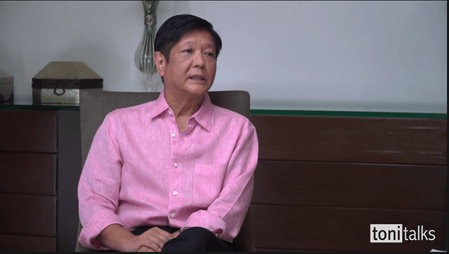
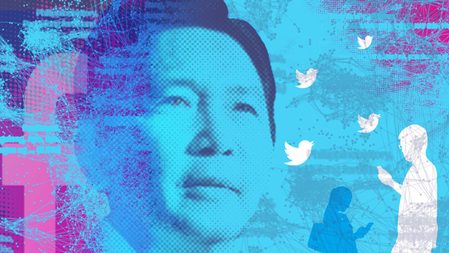
![[Just Saying] Marcos: A flat response, a missed opportunity](https://www.rappler.com/tachyon/2024/04/tl-marcos-flat-response-april-16-2024.jpg?resize=257%2C257&crop=277px%2C0px%2C720px%2C720px)
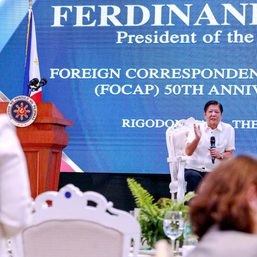
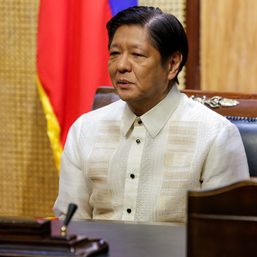

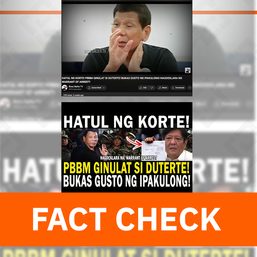
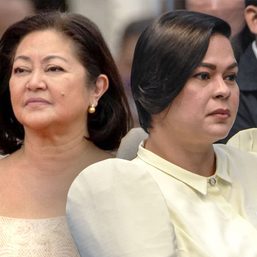
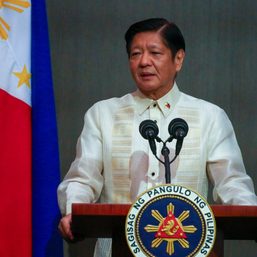
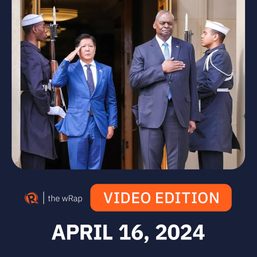
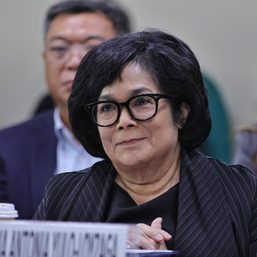
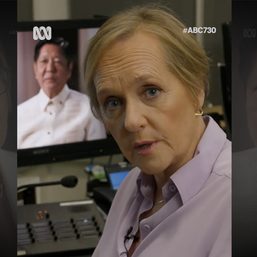
![[Newspoint] Some Australians aren’t fooled](https://www.rappler.com/tachyon/2024/03/newspoint-some-australians-are-not-fooled-03082024-2.jpg?resize=257%2C257&crop=257px%2C0px%2C720px%2C720px)
There are no comments yet. Add your comment to start the conversation.